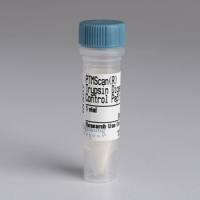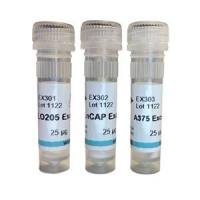Isolation of Exosomes for Subsequent mRNA, MicroRNA, and Protein Profiling
互联网
599
Exosomes are nano-sized, cell membrane surrounded structures that are released from many cell types. These exosomes are believed to transport a range of molecules, including mRNAs, miRNAs, and proteins; the contents depending on their cell of origin. The physiological and pathological relevance of exosomes has yet to be fully elucidated. Exosomes have been implicated in cell-to-cell communication. For example, in relation to the immune system, such exosomes may enable exchange of antigen or major histocompatibility complex–peptide complexes between antigen-bearing cells and antigen-presenting cells; in cancer, they may contain molecules that not only have relevance as biomarkers, but may also be taken up and cause adverse effects on secondary cells. Furthermore, exosomes have been proposed as autologous delivery systems that could be exploited for personalised delivery of therapeutics. In order to explore the contents and functional relevance of exosomes from medium conditioned by culture cells or from other biological fluids, prior to extensive molecular profiling, they must be isolated and purified. Here, we describe differential centrifugation methods suitable for isolating exosomes from conditioned medium and from other biological fluids, including serum, saliva, tumour ascites, and urine. We also detail Western blotting and transmission electron microscopy methods suitable for basic assessment of their presence, size, and purity, prior to progressing to global mRNA, miRNA, or protein profiling.









